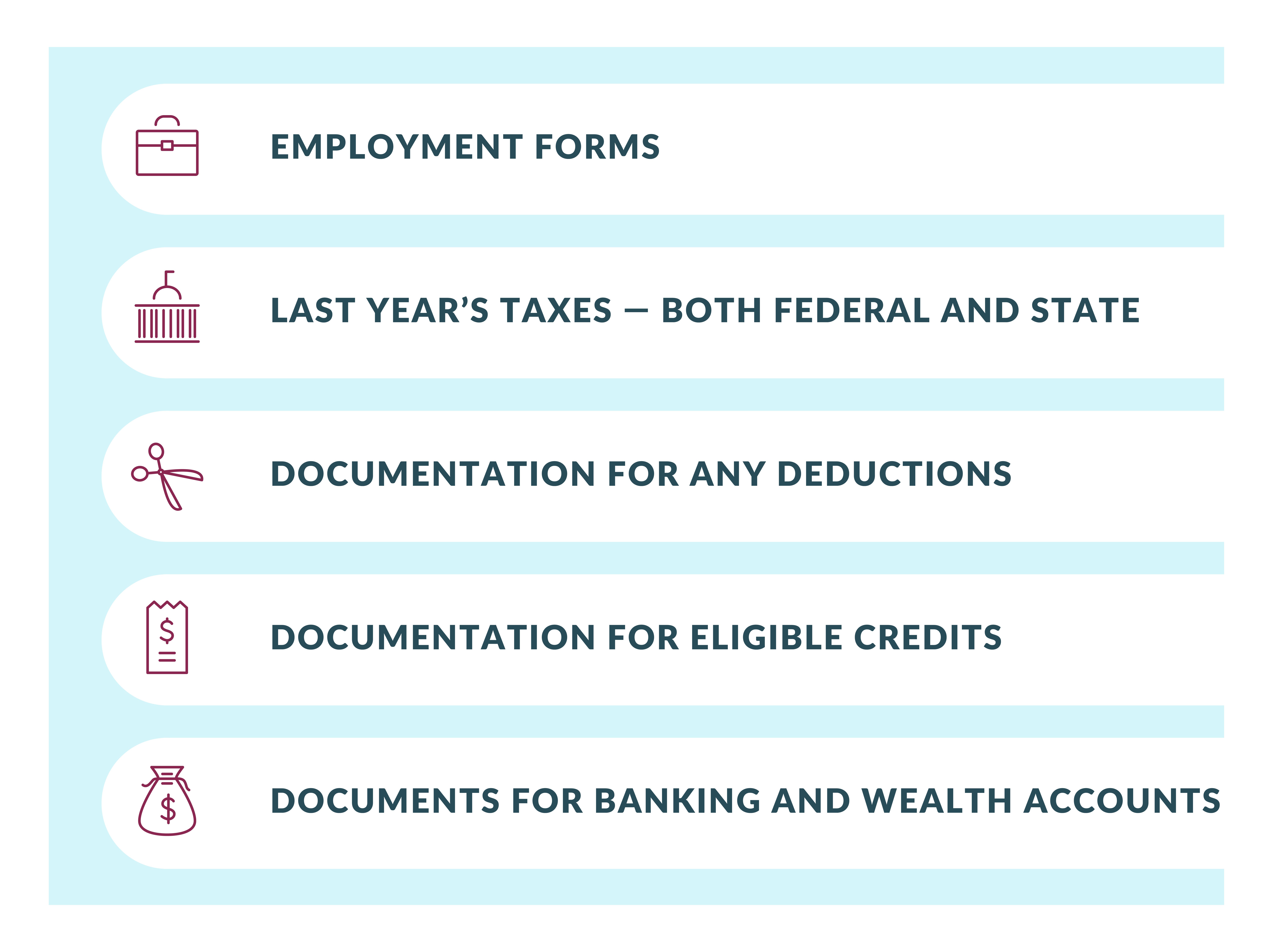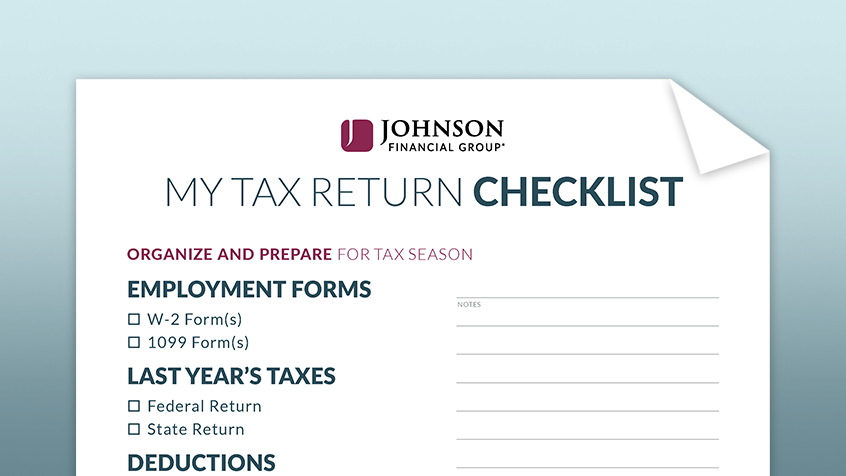SUMMARY
Getting ready for tax time? Here’s a comprehensive guide and checklist for taxes so you can prepare efficiently and stress-free this season.
Financial Planning Insights
4 minute read time
Getting ready for tax time? Here’s a comprehensive guide and checklist for taxes so you can prepare efficiently and stress-free this season.
Over the next couple of months, you’ll start to receive tax information from employers and financial institutions. By being prepared and getting ready early, you can save time and maybe even some money. Here’s a quick overview to help you stay organized:

There are several documents and pieces of information you can pull together before you meet with your accountant or sit down to do your taxes. To help you prepare, we’ve created a printable tax prep checklist so you can pull together your documentation with ease.

Ready to get organized? Download this free tax prep checklist to help you gather what you need for tax season.
DOWNLOAD HERE Download this Tax Prep Checklist.Your employer is required to provide you with a W-2 form, which is typically mailed to you by the end of January. If you are a contractor or self-employed, you will receive 1099 forms with information on how much you were paid last year. You should expect to receive your 1099s by early February. If you do not receive your 1099s from your clients or W-2 from your employer, reach out in February to make sure you receive a copy before you file your taxes.
A copy of last year’s state and federal return can help you understand what deductions you utilized last year and can help you fill out your tax return for this year.
Each year, many file using the standard deduction, which is a set amount that taxpayers can automatically subtract from their income without the hassle of itemizing. For others, there may be higher savings in itemizing your deductions. Some popular deductions include:
Tax credits allow taxpayers to reduce the income on which they owe taxes on. Some popular credits include:
To ensure a seamless tax filing process, it is crucial to gather all your tax documents for both your bank and wealth accounts, regardless of whether you receive them via mail or through our online banking and wealth portals. If you have any questions or need assistance regarding access to your tax documents, we encourage you to reach out to your dedicated banker or wealth advisor. They possess the expertise and knowledge to provide you with the necessary guidance and support, ensuring that you have all the information you need for a successful tax filing.
Now is a great time to meet with your advisor to review your personal financial situation and make sure your finances, assets and goals are still in alignment. While meeting with your advisor, you can discuss your current situation and if there is anything that you should be aware of or doing to minimize tax savings. Some topics you might discuss with your advisor at tax time might be about eligibility and the potential benefits of a Roth IRA conversion, how you’re managing capital gains and about the tax efficiency of your asset allocation.
Connect with your advisor if you have any questions as you prepare your taxes. We’re happy to help so you have a productive — and potentially money-saving — experience.
Johnson Financial Group and its subsidiaries do not provide tax advice. Please consult your tax advisor with respect to your personal situation. Wealth management services are provided through Johnson Bank and Johnson Wealth Inc., Johnson Financial Group companies. Additional information about Johnson Wealth Inc., a registered investment adviser, and its investment adviser representatives is available at https://www.adviserinfo.sec.gov/. Investment products: are not insured by the FDIC; are not deposits; and may lose value.